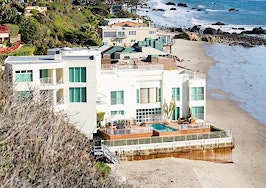Shale, the petroleum-rich sedimentary rock at the center of an energy boom in North Dakota, drove a Minnesota man to target would-be investors in a multimillion dollar real estate scheme to house itinerant oil workers.
Developer Ronald Johnson, 51, was sentenced to 10 years in prison on wire fraud and money laundering charges stemming from a plot to defraud investors of more than $2.1 million by building an R.V. park for the state’s emerging workforce of oil company employees, according to the U.S. Attorney’s Office in Minnesota.
“Ronald Johnson abused the trust of his victims only to enrich himself at their expense,” said Assistant U.S. Attorney Joseph Thompson. “He promised investors he would use their money to purchase land in North Dakota and to build indoor RV parks, but it was all a lie. Johnson simply stole their money. With today’s sentence, which includes prison time, restitution and a forfeiture order, Johnson is now being held accountable for his crimes.”
The scheme, unspooled during a joint investigation by the Internal Revenue Service and the Federal Bureau of Investigations, targeted at least four Minnesota investors who bought into Johnson’s proposal to build a complex of climate-controlled warehouses along the so-called Bakken shale formation underlying Montana and North Dakota, according to court documents.
The warehouses, Johnson promised, would carve out space for the region’s growing population of oil workers to park their recreational vehicles, do laundry and bath. The accommodations were pitched as a more comfortable alternative to barracks-style housing that has popped up across western North Dakota, especially in Williston, a town of 30,000 where a one-bedroom apartment can fetch more than $2,000, according to Apartment Guide.
Thanks to the process of injecting pressurized liquid deep into the Earth called hydraulic fracturing, better known as “fracking,” North Dakota’s energy boom began a decade ago and has since fueled a gold rush, so to speak, that has resulted in a 67-percent population increase in Williston. But following a slump in oil prices in 2015, state officials last year moved to raze temporary camps for part-time oil workers, according to the Los Angeles Times.
As part of the con, Johnson sent emails and letters to investors, replete with detailed building renderings and property specifications, according to the court documents. Instead of building the park, however, Johnson paid off investors in a separate business deal, refinanced a 51-acre cattle farm, and purchased several cars, properties and vacations, the prosecutors charged.
“The FBI together with our law enforcement partners will tirelessly pursue those responsible for investment fraud schemes,” said FBI Special Agent Richard Thornton. “The sentence handed down today to include time in prison reflects the seriousness of the defendant’s crimes.”
Email Jotham Sederstrom












